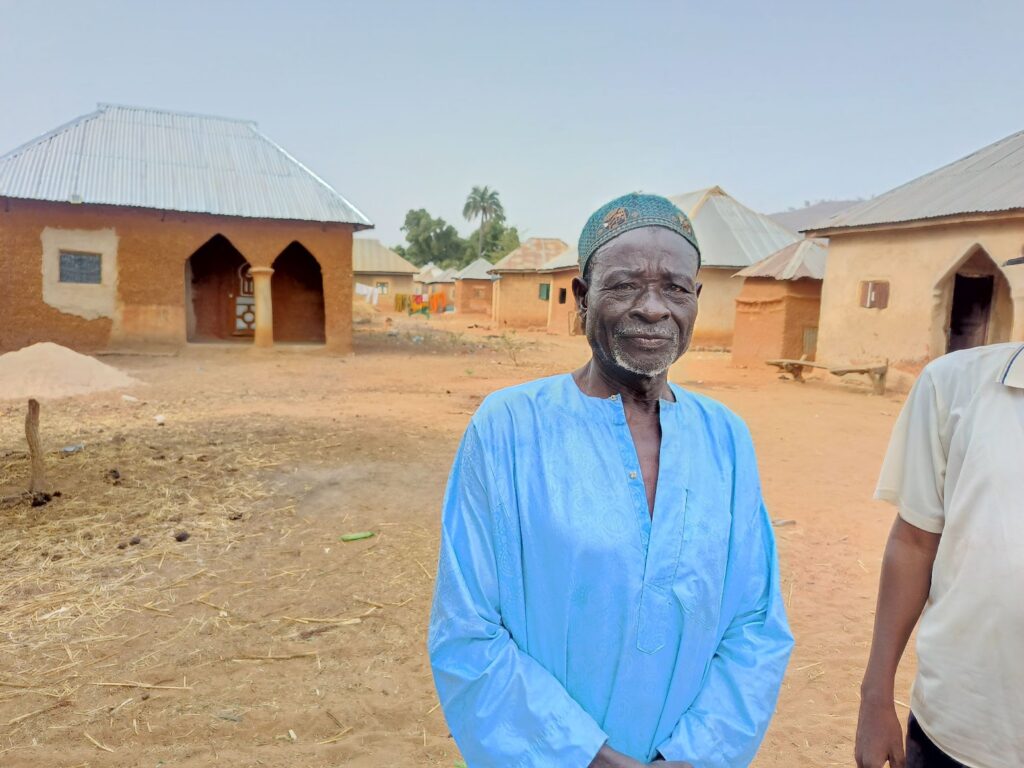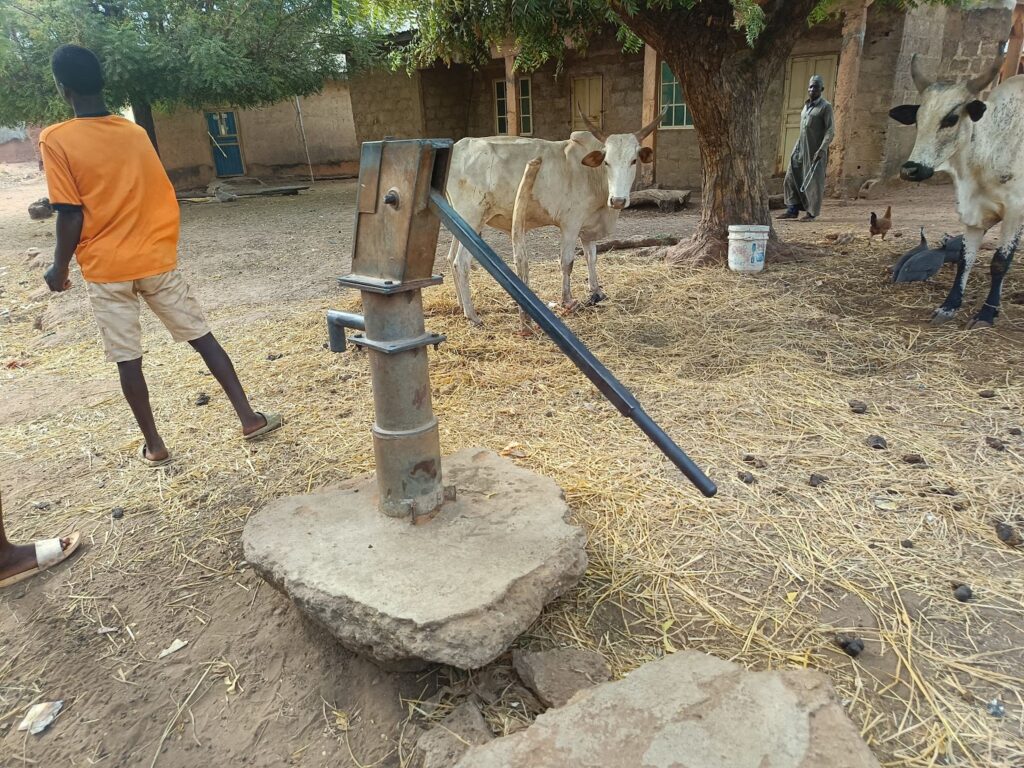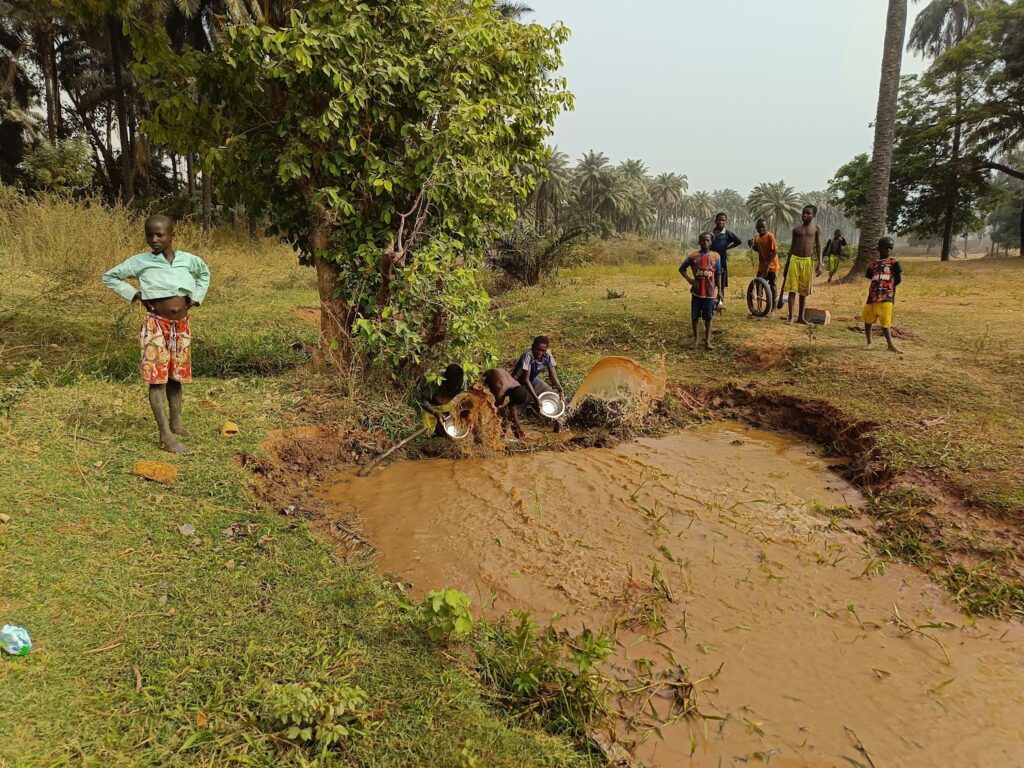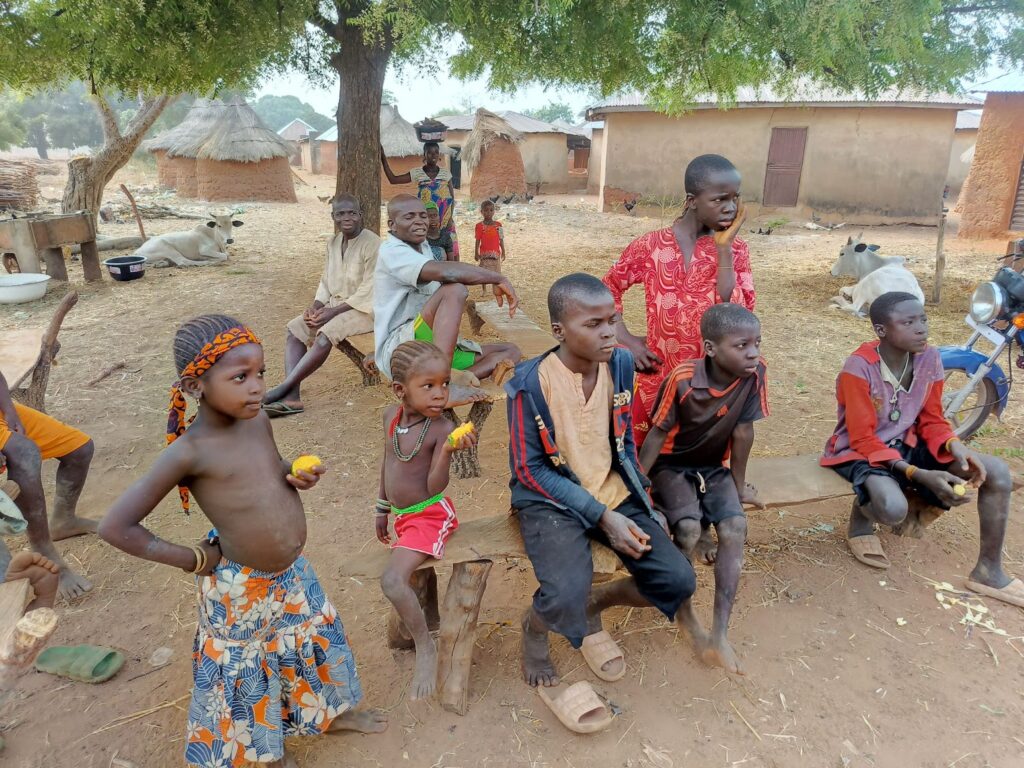How best can one describe a disadvantaged community?
Find your way to Bida town in Niger state. Tell a commercial motorcycle rider you’re going to Teteko village. If you’re lucky enough to find one easily, you will travel from the main town to the community for roughly one hour and fifteen minutes. You can’t ride on a motorcycle to Teteko without nearly breaking your back. The bumpy road network twists and turns, and if your rider isn’t strong enough, it could run the motorcycle aground and leave you with a bloody nose.
The people here live in a world devoid of basic necessities, including potable water.
On Feb. 17, squeals from wandering pigs welcomed me to the community. Tender kids swarmed around me, sitting uncoordinatedly in the garden of the village chief and mumbling in their ethnic Nupe language. Then, Muhammad Musa, the chief, appeared.
“As you can see, we’re suffering and helpless at the same time,” he said, standing firmly in front of the camera. “We do not have potable water in this village. All our wells are drying, and the only stream we get water is shallowing into a cave, making it even more cumbersome to fetch from it.”
A trip through the village soon confirmed Musa’s description and revealed he even understated some aspects. There are only four wells in the community, and all are drying up. Even when there was water in them, villagers told me, it would take up to five minutes to draw a bailer out of the wells, provided the drawer was energetic enough.

At the stream, 15 minutes away from the village chief’s palace, a woman just finished washing her dishes, but as she saw me approaching, she struggled to maintain her balance, falling off the plates. When I told her sorry, she grinned and immediately replied, “Nothing to be sorry about.”
Jumai Umaru, the dark, middle-height woman, had a lot to worry about, and seeking apologies wasn’t one of them. Her community lacks basic amenities of life: a good road network, electricity supply, schools, and clinics. Above all is the acute water scarcity. Sometimes, Jumai told me, she goes several days without a drop of water touching her skin.
“We’re a forgotten village,” the village chief interrupted. “Nobody cares we’re here. The only borehole we ever had in our community got spoiled seven years ago because it was not well constructed.”
“We have contacted the local government many times, but they only kept promising us without actually reaching out to us,” he added. Posters of politicians seeking power are plastered on muddy walls all over the area. Local politicians had campaigned in the community during the last election, begging residents for votes, the village head claimed.

One former local government councillor had come to the village promising he would fix the water system once they voted him to emerge as a member of the House of Assembly. Community members say they gave him their votes, but he has failed to keep his word.
The politician has not returned to the community since the election. Many election cycles have come and gone in Tetek0, but the problems persist. Campaign posters and ballot boxes find their way into the hard-to-reach community, but development never gets to them.
But for the obviously contaminated stream, Teteko has no other sustainable water system. “We bathe and drink from this same stream, and even cows and pigs share them with us,” the chief giggled before immediately gathering his face into a frown.
Mallam Musa, the Chief Imam and the only man with a phone in the village, had a message for the authorities. “We, too, are humans,” he said. “We deserve good things, too, but our leaders have denied us everything.”

Acute water scarcity is a major problem in Niger, a state surrounded by major water bodies, including the expansive River Niger and three significant dams, Kainji, Jebba, and Shiroro. In major towns and cities, such as Minna, Suleja, Bida, and Kontagora, potable water supply is a luxury despite successive governments expressing commitments to fix the problem.
Several analysts believe this situation in Niger is paradoxical, especially because the state is not a dry land. Muhammad Danjuma, a public affairs analyst, said the acute water scarcity in the state is paradoxically similar to what Samuel Taylor, an English poet and philosopher, depicted in one of his lines, “Water, water everywhere and not a drop to drink.”
“Ours is a government that doesn’t care much about the people but themselves,” Danjuma remarked. “How can there be a community cut off totally from the world in a town so renowned as Bida? I would like to ask the government to do the needful for the Teteko people, lest things go rogue.”
The Chief Press Secretary of Niger State, Ibrahim Bologi, was unreachable when we contacted him. His line was switched off the two times we tried to reach him, and he hasn’t responded to our queries on what the state is doing to fight the prevalence of water scarcity.

Niger State has experienced perilous water shortage for many years, with no solution in sight. Former governor Mua’zu Babangida Aliyu had declared two years in a row as the “Year of Water” and allocated a significant portion of the state’s budget for this initiative. Yet, the problem of water scarcity remains unresolved.
Even urban dwellers say they are usually helpless during the peak of the dry season, especially from January to April. Most people rely largely on the state’s Water and Sewage Corporation for their water needs. In the face of scarcity, most people depend on local vendors, known as mai ruwa. But when power outages occur, or the public water board fails to supply, even those in areas with water infrastructure experience shortages.
The United Nations Children’s Fund (UNICEF) has observed that inadequate access to enhanced water and sanitation facilities in Nigeria is contributing to the high morbidity and mortality rates among children.
It noted that the reliance on polluted drinking water and substandard sanitation practices increases the risk of contracting illnesses such as diarrhoea, which is responsible for the annual death of over 70,000 children under the age of five.
The UN Sustainable Development Goal 6 advocates for the universal and equitable provision of safe and affordable drinking water. This goal is measured by the indicator “safely managed drinking water services,” which refers to water from a source that is not only improved but also readily available on-site, consistently accessible, and not contaminated with faecal matter or harmful chemicals.
In communities like Teteko, the problems are multiple, said Maryam Abdullahi, a development journalist based in Niger state. “It is unimaginable how the people survive without potable water, electricity, schools and hospitals,” she said, asking the authorities to “consider the public health of the people and treat them like humans.”
Support Our Journalism
There are millions of ordinary people affected by conflict in Africa whose stories are missing in the mainstream media. HumAngle is determined to tell those challenging and under-reported stories, hoping that the people impacted by these conflicts will find the safety and security they deserve.
To ensure that we continue to provide public service coverage, we have a small favour to ask you. We want you to be part of our journalistic endeavour by contributing a token to us.
Your donation will further promote a robust, free, and independent media.

